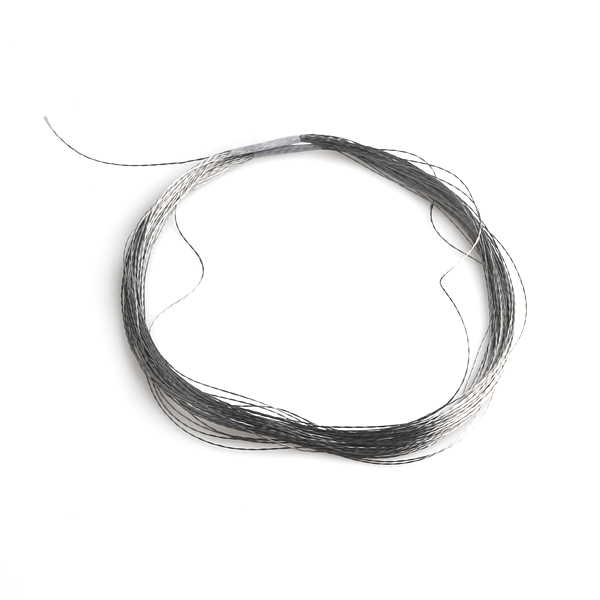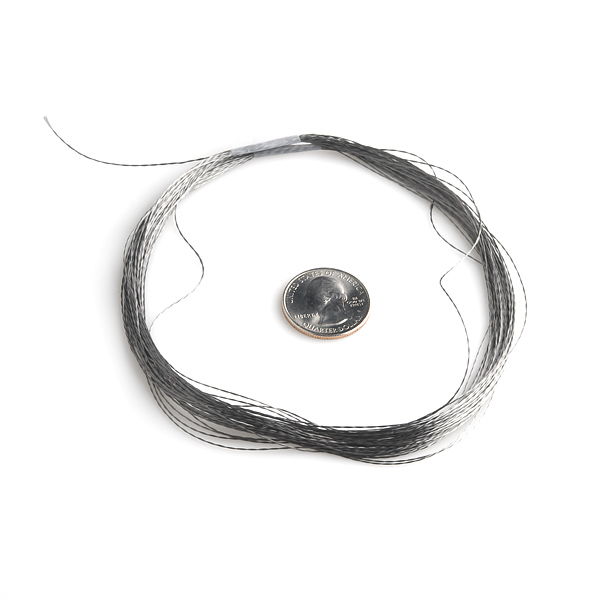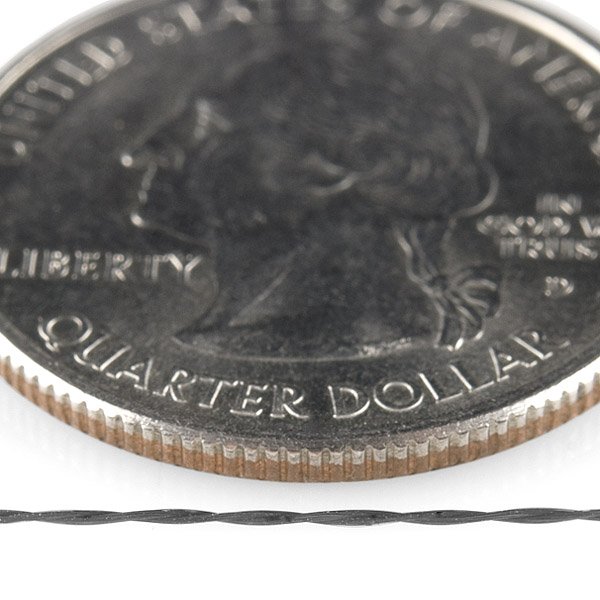Conductive Thread (Thin) - 50'
Conductive thread is a creative way to connect various electronics onto clothing. This thread can carry current for power and signals. While not as conductive as traces on a printed circuit board (PCB), this thread makes wearable clothing 'wearable'!
This thread is stainless steel making it extremely tarnish resistant. This thread is a 2-ply thread and may be small enough to be compatible with some sewing machines.
This thread has a resistance of about 9 Ohms per linear foot and weighs about 0.20 ounces for the full 50 feet.
- Datasheet 1 (VN 14/2X90/175S/316L)
- Datasheet 2 (VN 14/2X90/175S/316L)
Conductive Thread (Thin) - 50' Product Help and Resources
Core Skill: DIY
Whether it's for assembling a kit, hacking an enclosure, or creating your own parts; the DIY skill is all about knowing how to use tools and the techniques associated with them.
Skill Level: Noob - Basic assembly is required. You may need to provide your own basic tools like a screwdriver, hammer or scissors. Power tools or custom parts are not required. Instructions will be included and easy to follow. Sewing may be required, but only with included patterns.
See all skill levels
Comments
Looking for answers to technical questions?
We welcome your comments and suggestions below. However, if you are looking for solutions to technical questions please see our Technical Assistance page.
Customer Reviews
4 out of 5
Based on 1 ratings:
Excellent way to facilitate texting
This thread works very well for the purpose of creating texting gloves. The only annoying thing is that the thickness of the thread makes threading the needle difficult for this experienced sew-er.




I do not recommend this product if you plan to do a conductive sewing project with kids. It easily kinks, twists, and can be very hard to knot. It was very frustrating for 8-12 year olds. There are other conductive threads on the market that do not kink so easily and carry enough current for most kid friendly projects.
Is the product flexible enough to knot without breaking?
can this thread be used to make glove finger tips that works on an iPhone? thx!
Works great!
what's the max amp rating for this wire?
I used this thread to create blinky scarves for my kids - worked great!
Is this thread available in a larger presentation such as 250', 500' or more?
You can't solder it, but I've had luck using the brass ball from the end of a guitar string. You tie the thread to the ball, then you can solder to that.
Crimp one of these onto it, cut off most of the pin, solder the crimp portion to the board.
http://www.digikey.com/product-detail/en/T-0006/CP-9999-ND/145332
Would this thread zap you if you touched it while in use?
It has no insulation if that's what you mean but generally this wire is used for low voltage projects which are low enough for you not to get "zapped"
Just wondering, Could you solder this thread? Or would conductive glue be better?
It's stainless - very hard to solder. I suspect that the silver plated thread would solder better.
Unfortunately, the silver-plated thread has nylon content as well, so the heat of a soldering iron disintegrates it. The stainless threads are difficult to solder, but at least possible.